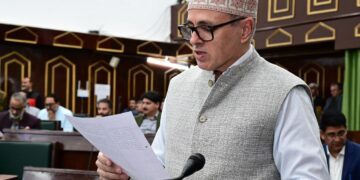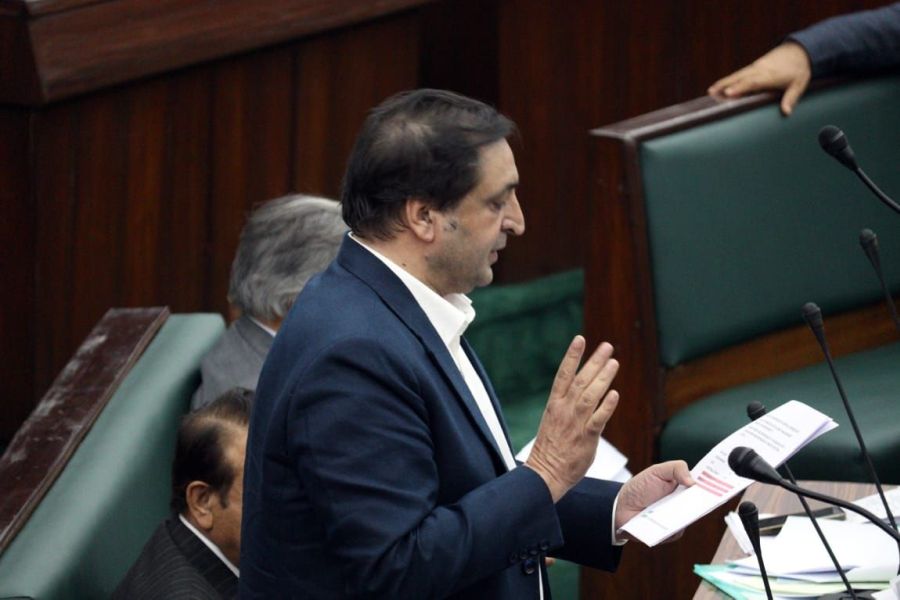Srinagar, Apr: Dismissing the petitions by two alleged drug traffickers against their preventive detention, the High Court of J&K and Ladakh on Friday ruled that one single act can constitute the basis for detention.
Justice Vinod Chatterji Koul while dismissing the writ petitions by two alleged drug traffickers Ishfaq Ahmad Khan and Owais Ahmad Tag noted “in any given case a single act is found to be not sufficient to sustain the order of detention that may well be quashed, but it cannot be stated as a principle that one single act cannot constitute the basis for detention.”
His judgment continued that on the contrary, it does. “In other words, it is not necessary that there should be multiplicity of grounds for making or sustaining an order of detention”.
The bench dismissed the petition seeking quashment of orders by Divisional Commissioner Kashmir in terms of Section 3 of Prevention of Illicit Traffic in Narcotic Drugs and Psychotropic Substances Act, 1988. The orders placed the alleged traffickers under Public Safety Act (PSA), a preventive detention law to prevent the duo from committing any of the acts within the meaning of Illicit Traffic in Narcotic Drugs and Psychotropic Substances Act, 1988.
After hearing the counsels of the parties, the judge held that the grounds of detention made a mention that the detainees are part and active members of large drug mafia and relentlessly involved in drug trafficking not only in local area of their residence but are also involved in such illegal activities at the district level, surrounding area of their districts.
Their activities are affecting the health and welfare of people and also have an adverse impact on the national economy.
The detainees have been apprehended by Police Station Tral in connection under Section 8/29 NDPS Act and seized psychotropic and narcotic substances from them.
In examining the question whether the ordinary laws of the land would have sufficed, and whether recourse to preventive detention was unnecessary, the court held that the compulsions of the primordial need to maintain order in society without which the enjoyment of all rights, including the right to personal liberty of citizens, would lose their meaning, provide the justification for the laws of preventive detention.
The power of preventive detention is exercised in reasonable anticipation. It may or may not relate to an offence. It does not overlap with the prosecution even if it relies on certain facts for which prosecution may be, or may have been, launched. An order of preventive detention may be made before or during prosecution. It may be made with or without prosecution and in anticipation or after discharge or even acquittal, the court said.
It said the drug problem is a serious threat to public health, safety and well-being of humanity. Our global society is facing serious consequences of drug abuse and it undermines socio-economic and political stability and sustainable development.
Besides, it also distorts the health and fabric of society and it is considered to be the originator for petty offences as well as heinous crimes, like smuggling of arms and ammunition and money laundering. Involvement of various terrorist groups and syndicates in drug trafficking leads to threat to the national security and sovereignty of states by way of narco-terrorism, it added.
Drug trafficking and abuse, the court said, has continued its significant toll on valuable human lives and productive years of many persons around the globe. With the growth and development of the world economy, drug traffickers are also seamlessly trafficking various types of drugs from one corner to another ensuring availability of contrabands for vulnerable segments of society who fall into the trap of drug peddlers and traffickers.
“Having regard to the persons by whom and the manner in which such activities are organised and carried on, and having regard to the fact that in certain areas which are highly vulnerable to the illicit traffic in narcotic drugs, such activities of a considerable magnitude are clandestinely organised and carried on, it is necessary for the effective prevention of such activities to provide for detention of persons concerned in any manner therewith,” the court recorded.







